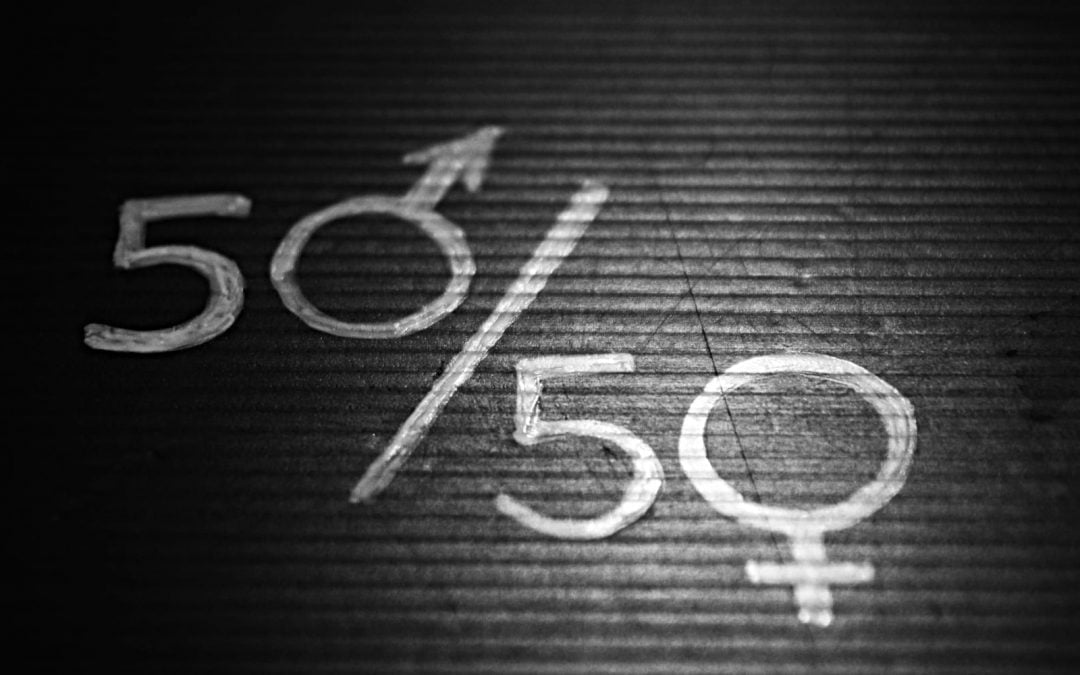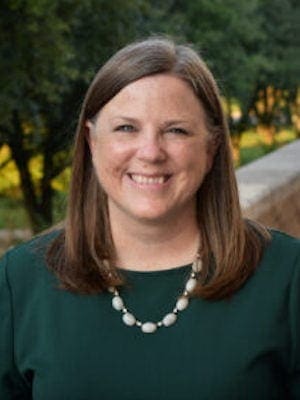There was a time, not all that long ago, when I would not stand in front of a group of people and say the other F word.
No, not the one you’re thinking of!
I’m talking about the F word that has a tendency to raise so many eyebrows in evangelical churches and the culture associated with it.
Feminism.
I knew that anytime I uttered the words “feminism” or “feminist,” people would immediately stop listening to me. They would label me as a radical, bra-burning, men-hater.
So, I didn’t say it. I consented to the popular definition of the word by choosing to relegate it to unspoken status along with a host of other words that have been deemed unacceptable or “bad.”
And when Sarah Bessey’s book, “Jesus Feminist,” came out, I knew the audience who needed to read her book most would reject its premise before they even pulled it off the bookshelf simply because its title included a word on their shame list.
But those who did read Bessey’s book found this statement in its early pages.
“At the core, feminism simply consists of the radical notion that women are people too,” she writes.
Even though I am not a fan of the fact that the sentence above needs a “too” at the end of it, this affirmation is one of the best summaries of feminism I have heard. Women are people and are worthy of all the rights that other people have.
Women are worthy of the same access to education as men have. Women are worthy of owning property, having careers and being paid the same rate as men for doing the same jobs.
Women are worthy of equal access to healthcare for all their needs. Women are worthy of having their own dreams and pursuing happiness.
But, sadly, this is not the case in many societies today, even though countless studies have shown that when women are educated, empowered and treated as equals, the society as a whole prospers at significant rates.
This year’s theme for International Women’s Day is #BalanceforBetter, which asserts that a gender-balanced world is a better working world.
A discussion of the theme describes: “Balance is not a women’s issue; it’s a business issue. The race is on for the gender-balanced boardroom, a gender-balanced government, gender-balanced media coverage, a gender-balance of employees, more gender-balance in wealth, gender-balanced sports coverage. … Gender balance is essential for economies and communities to thrive.”
I must wonder, then, why have we not realized that the same might be true for the church? That a gender-balanced church might be a better working church, one that thrives?
When Bessey has been asked what kind of a feminist she is, or why she is a feminist, her simple response is because of Jesus (pages 14-22).
The gospels are persistent in showing a picture of Jesus that declares women are people (too).
Jesus includes women among his followers and disciples (Luke 8:1-3) and highlights women as providing examples of what discipleship should look like (for example, Mark 12:41-44, Matthew 26:6-13 among others).
When the male disciples desert Jesus after his arrest (Matthew 26:56, Mark 14:50), the women who had followed Jesus stayed and witnessed the crucifixion (Matthew 27:55-56, Mark 15:40-41).
The women even continue their faithfulness by showing up at the tomb of Jesus; because of their faithfulness, they receive the proclamation that Jesus is risen and are entrusted with the task of sharing that good news as the first evangelists (Matthew 28:1-10, Mark 16:1-8, Luke 24:1-12, John 20:1-18).
Therefore, I no longer refrain from the saying the other F word in my classes, in my church or to my friends because I tend to think that if the word existed in the first-century Greco-Roman world, Jesus might have said it too.
When women, who represent more than half of the people in our churches, are educated, empowered and treated as equals, the church as a whole can prosper at significant rates.
Feminism is not only the assertion that women are people (too), it can be the very means by which God’s purposes come to pass in a church that has #BalanceforBetter.
Editor’s note: This article is the first in a series for International Women’s Day (March 8).


